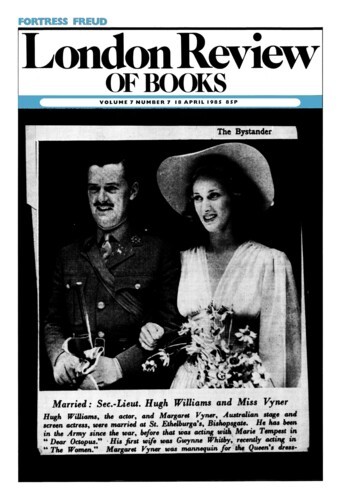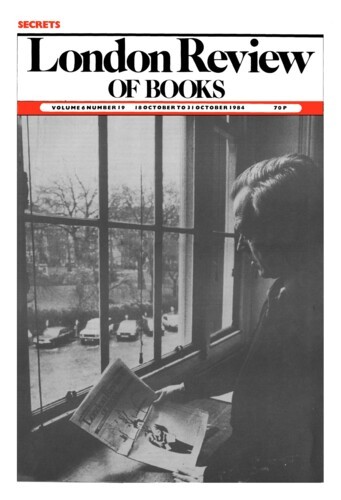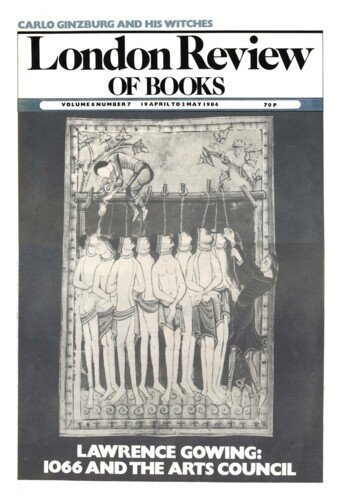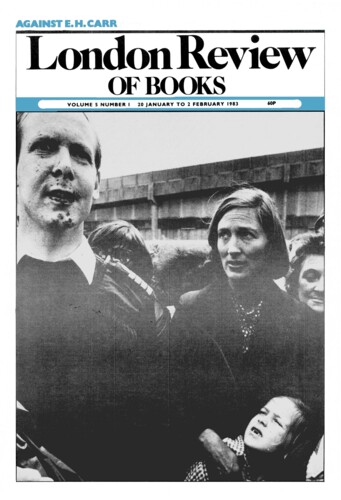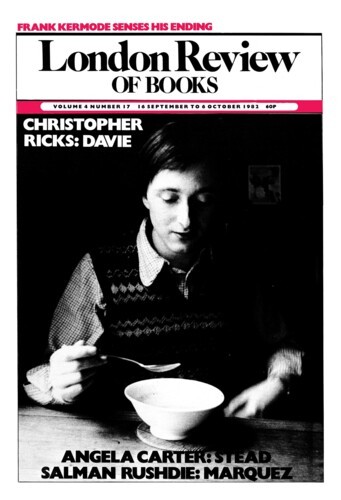God in Heaven send us peace
Peter Burke, 18 April 1985
Geoffrey Parker’s new book on the Thirty Years’ War is the first major study of the subject to appear in English for nearly half a century. To be more exact, it is now 47 years since the publication of a book on the war by C.V. Wedgwood, as she was then. That graceful and perceptive study – a remarkable achievement for a 28-year-old historian – remains an example of traditional narrative history at its formal best. The author delights in the kind of historical set-piece which had appealed to Gardiner, to Gibbon or to Clarendon. Each new character who comes onto the stage provides the occasion for a formal portrait. We hear of the florid complexions and the addiction to alcohol of John George of Saxony and Christian IV of Denmark, of the ‘mouse-coloured hair’ and shrill voice of the Elector Maximilian of Bavaria, of the habitual kneeling and hunting of the Emperor Ferdinand II, of the royal bearing of Gustav Adolf of Sweden, and the pathological sensitivity to noise of the imperial general Wallenstein. Major events, like the battles of Breitenfeld and Lützen, and striking incidents, such as the sack of Magdeburg and the so-called Defenestration of Prague, when three supporters of the Habsburgs were thrown from the palace windows, are recounted at length and in style. It is a long book, more than five hundred pages of it, and a leisurely one, with time for recounting anecdotes and for dwelling on the surface of events as well as on their significance. It is saved from superficiality by the author’s strong sense of the dramatic, and more especially of the tragic. Written in the shadow of Munich and the Anschluss, the book was designed to reveal the futility of war. ‘Morally subversive, economically destructive, socially degrading, confused in its causes, devious in its course, futile in its result’, the Thirty Years War was, she said, ‘the outstanding example in European history of meaningless conflict’. The participants ‘wanted peace and they fought for thirty years to be sure of it. They did not learn then, and have not since, that war breeds only war.’’
